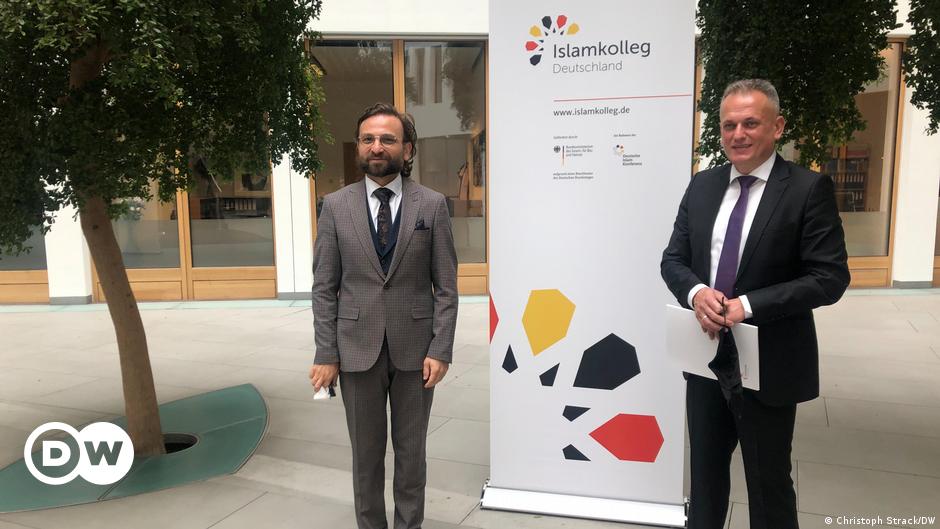It was “the right step in the right direction” for Ender Cetin. The child of Turkish immigrants was born and raised in Berlin. Now as a 45-year-old he belongs to the first class of Germany’s first Islamic studies college. Based in Osnabrück, the program began this week after many delays during the pandemic.
Cetin, who is already a lay imam, told DW that he was impressed with “the idea that something can take place in Germany to train imams ‘Made in Germany,’ which offers a future.”
Praise from the interior minister
The college in Osnabrück is part of an initiative that has received particular attention from German Interior Minister, Horst Seehofer, whose sprawling ministry is responsible for national security and religious affairs.
At last year’s German Islam Conference, Seehofer called plans for the college good news for Muslims in Germany. The government has taken pains to reduce the influence of foreign-trained imams, especially from Turkey.

Ender Cetin belongs to the first class of Germany’s first Islamic studies college
Increasing the number of German-speaking and -preaching imams has been an important goal for the ministry, which provided initial funding for the college.
The support is conditioned on the program’s conducting instruction in German and being tied to an institution of higher education, which the two-year program in Osnabrück fulfills. The college says its first class includes 25 people, with another 25 registered for continuing education courses.
Bülent Ucar, an Islamic studies professor from the associated Osnabrück University, who helped set up the college, told DW that the participants — whose families frequently have Turkish, Arab and Bosnian roots — represent the diversity of Islam. Twenty percent of the students are women.
Ucar said some Muslim communities “no longer understand” their imams if they don’t speak German — a communication gap that can lead to especially younger members drifting toward extremist content online, he added.
‘Unique opportunity’
“We have a unique opportunity to serve the practical needs of mosques,” Aiman Mazyek, the chairman of the Central Council of Muslims, told DW. The next challenge, he said, will be to win the acceptance of Muslim communities for these newly German-trained imams.
“I think this is a turning point for Muslim history in Germany,” said Cetin, the trainee. His own experience has shown that the need for this kind of practical training will only grow as “more and more young people prefer speaking about their religion in German.”
This article was translated from German.
While you’re here: Every Tuesday, DW editors round up what is happening in German politics and society, with an eye toward understanding this year’s elections and beyond. You can sign up here for the weekly email newsletter Berlin Briefing, to stay on top of developments as Germany enters the post-Merkel era.
Source: DW



